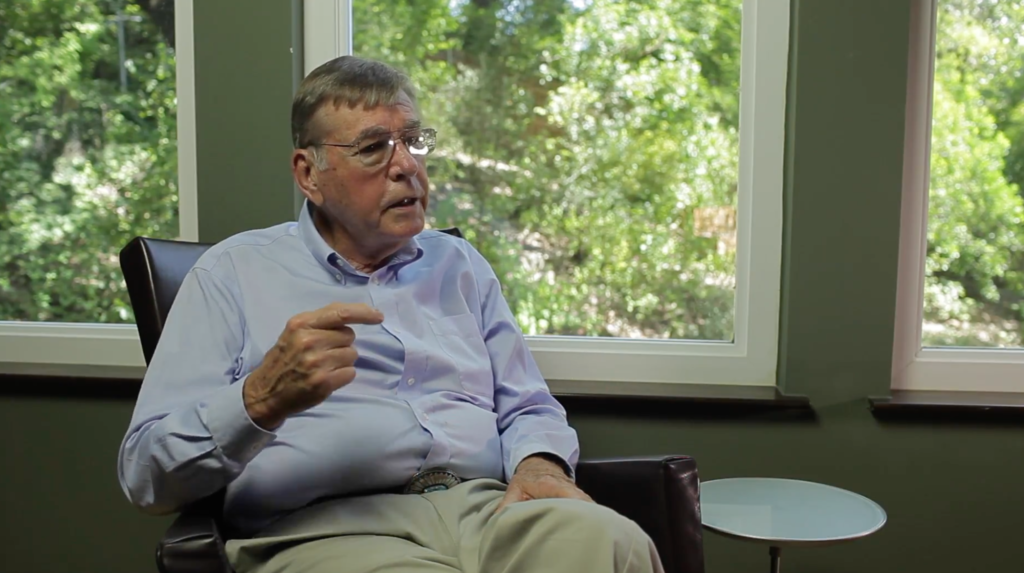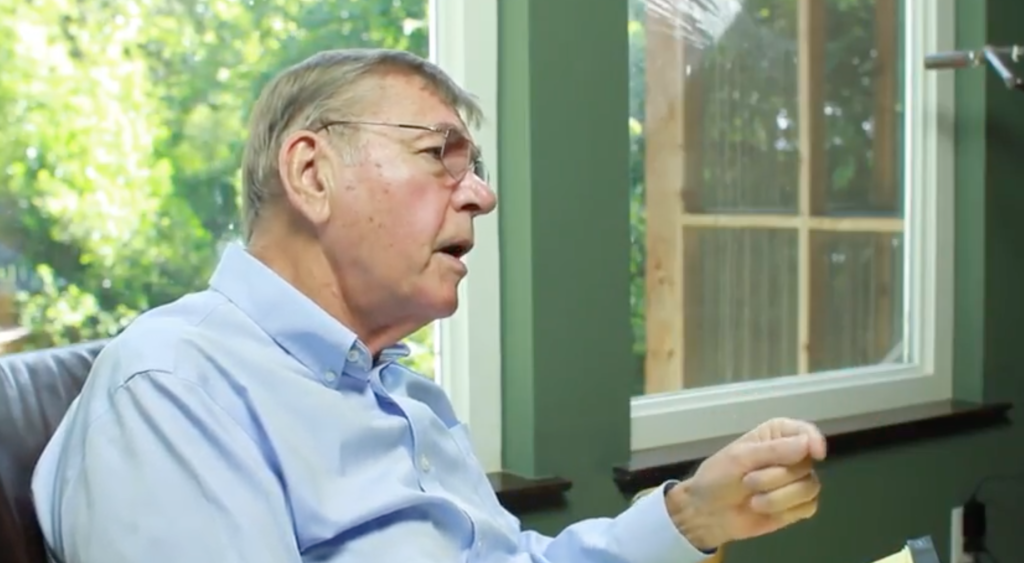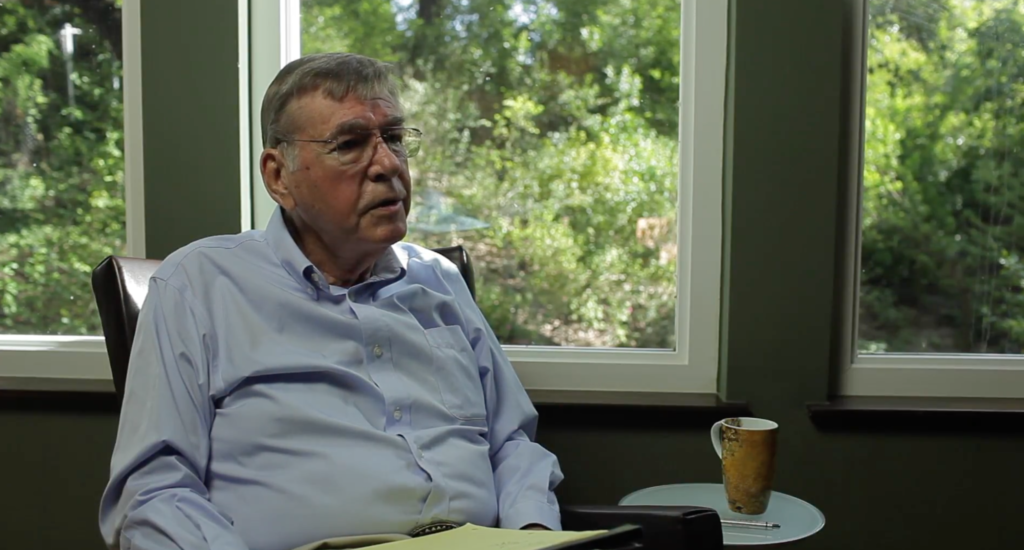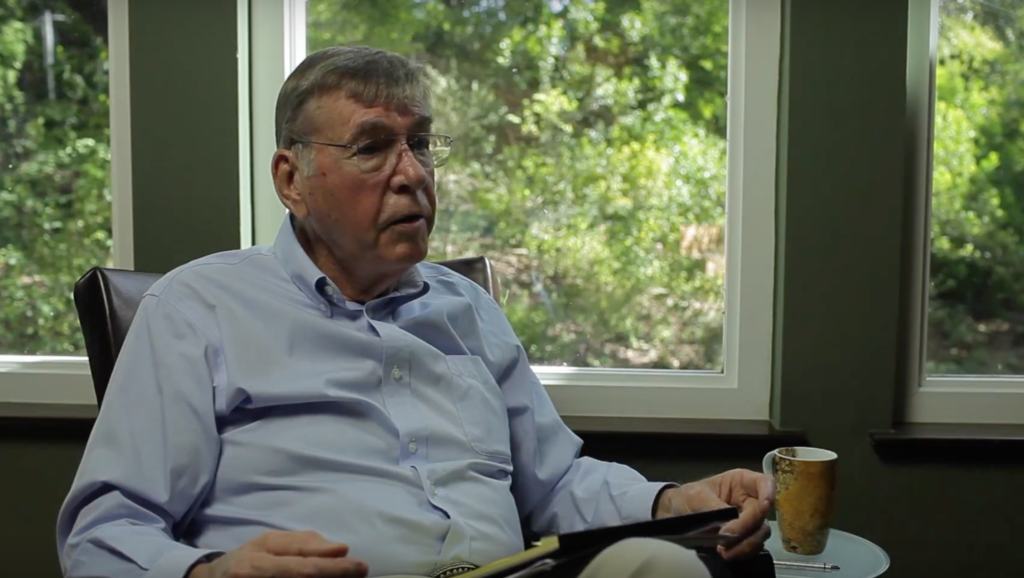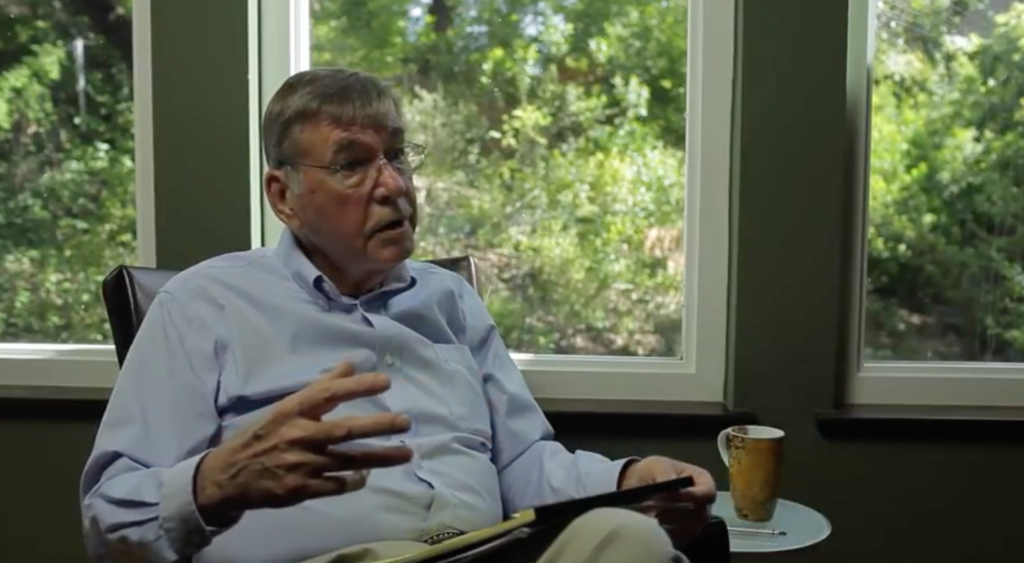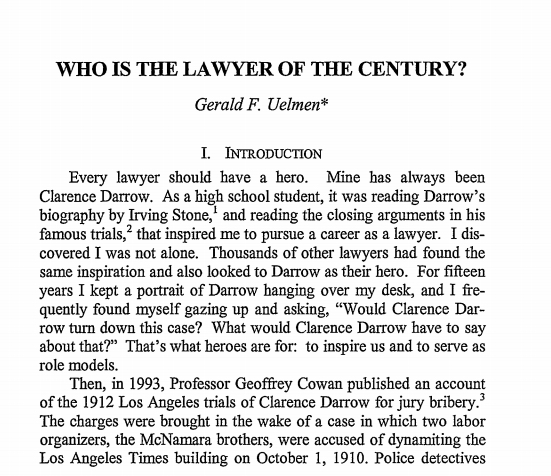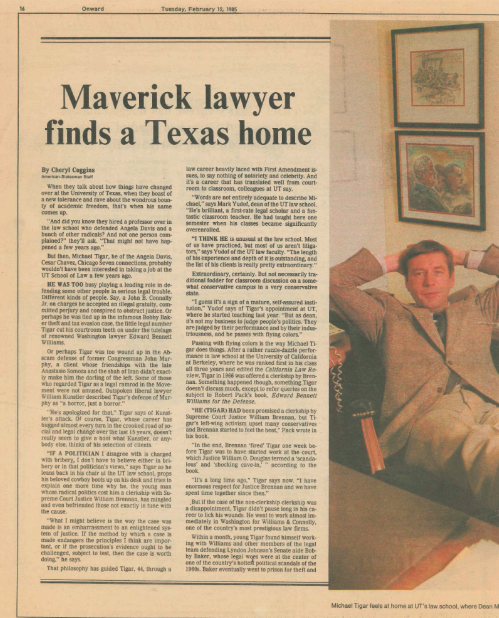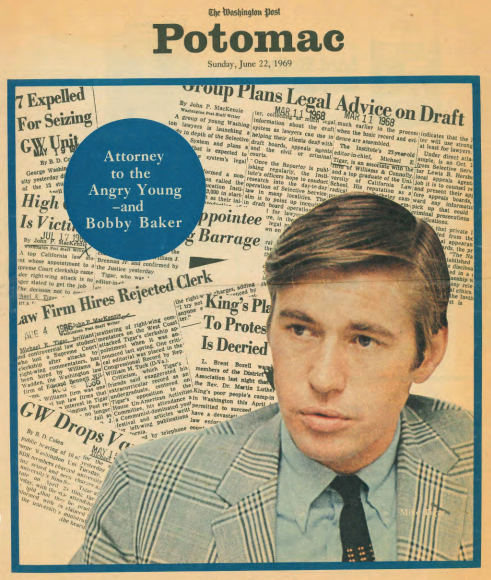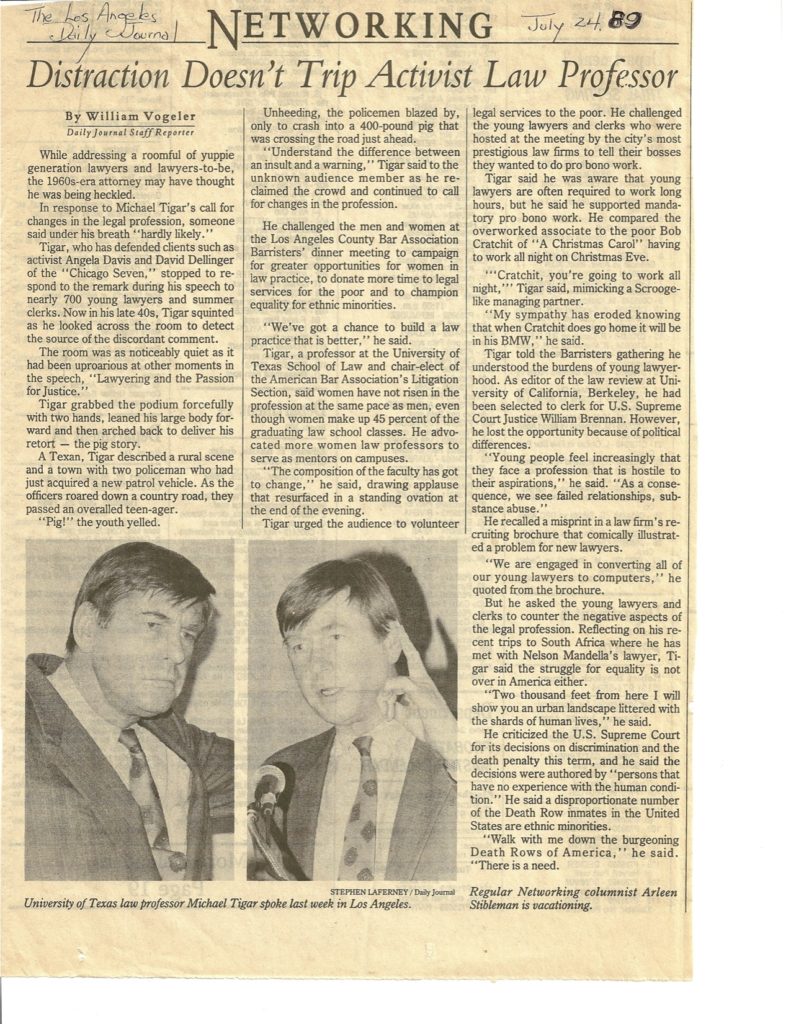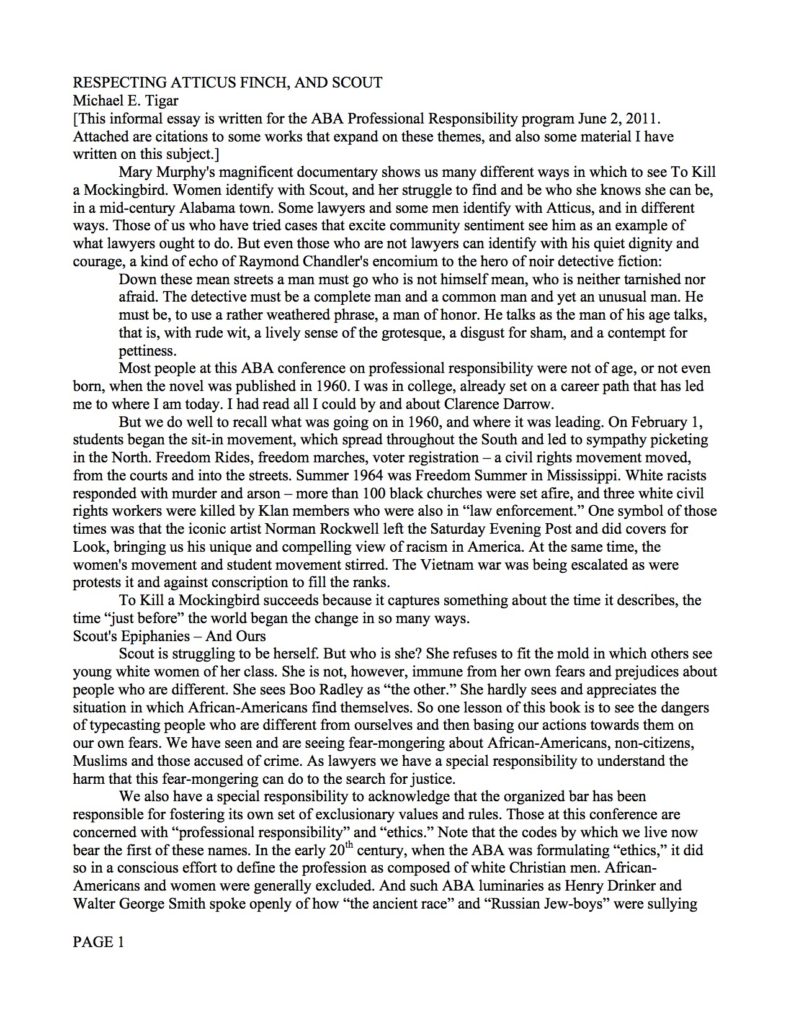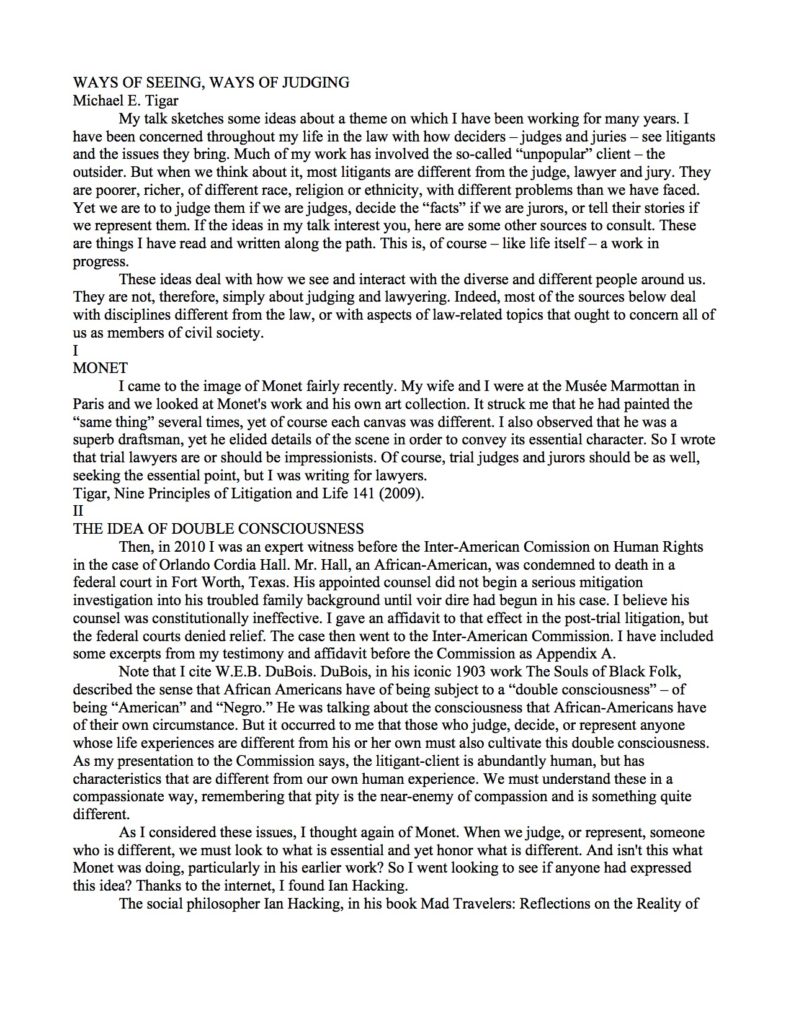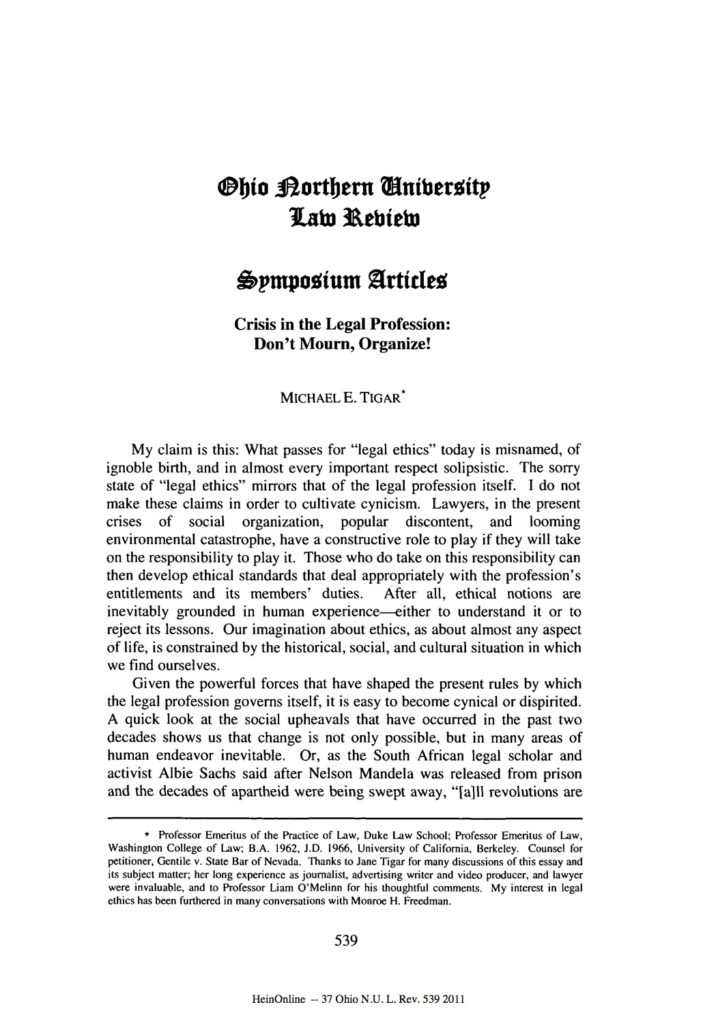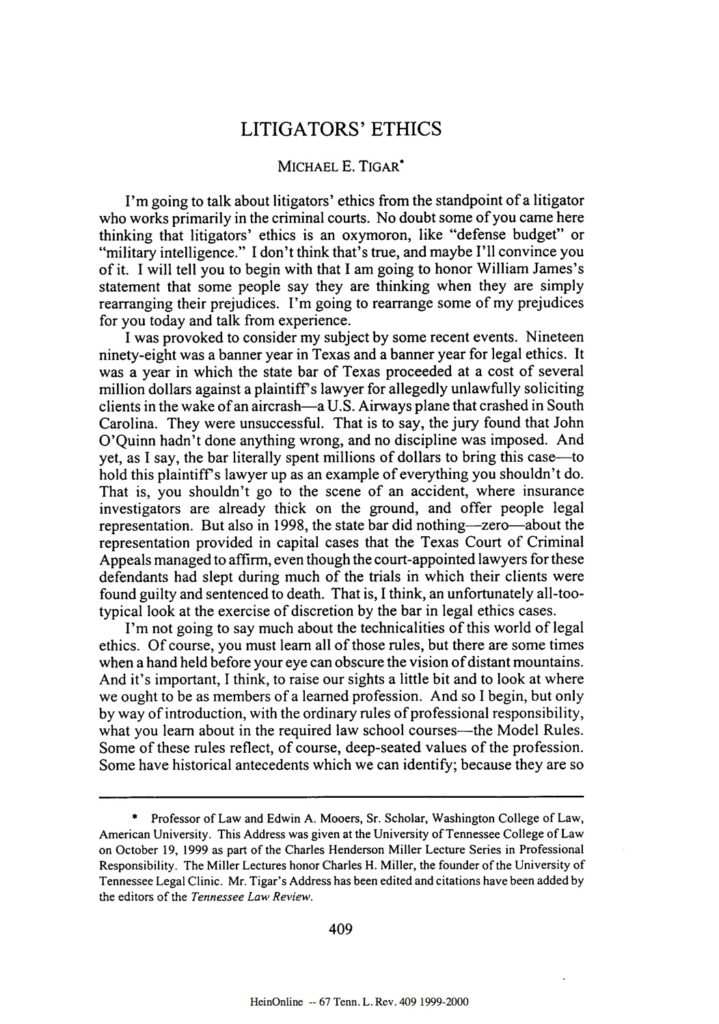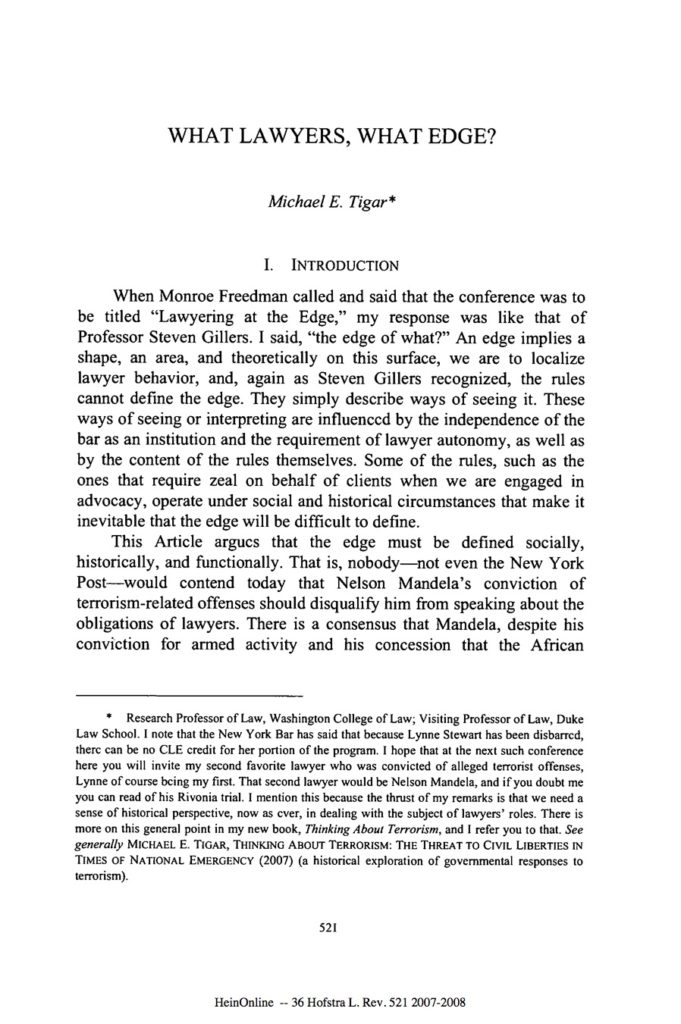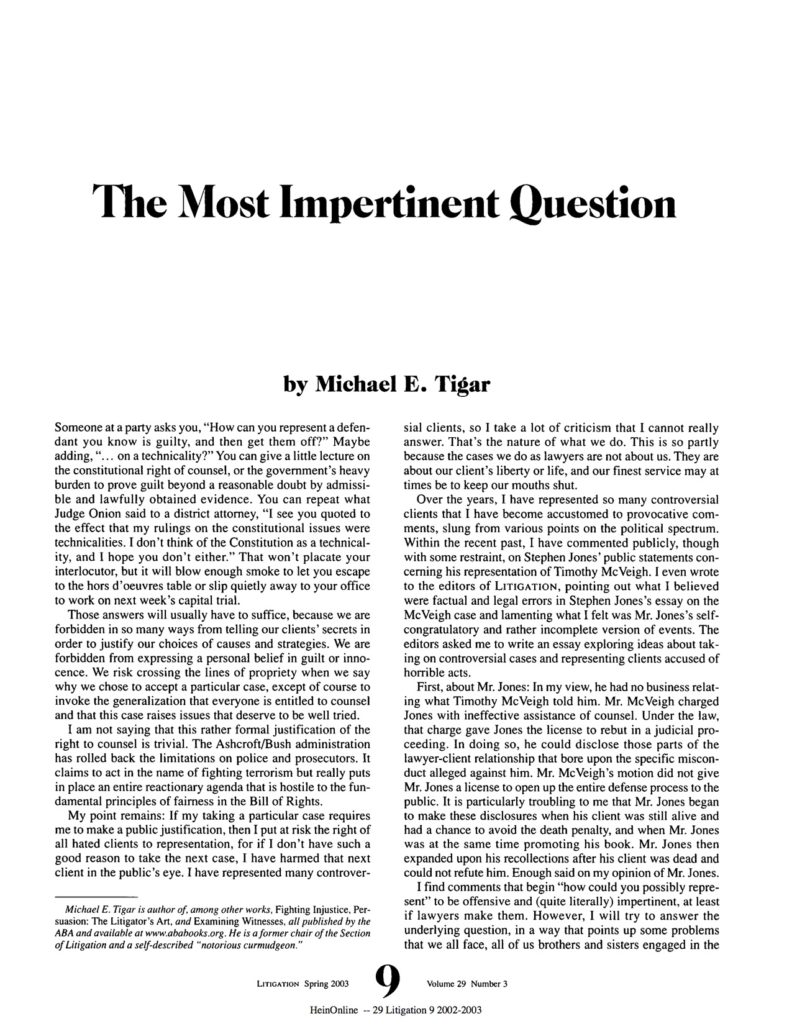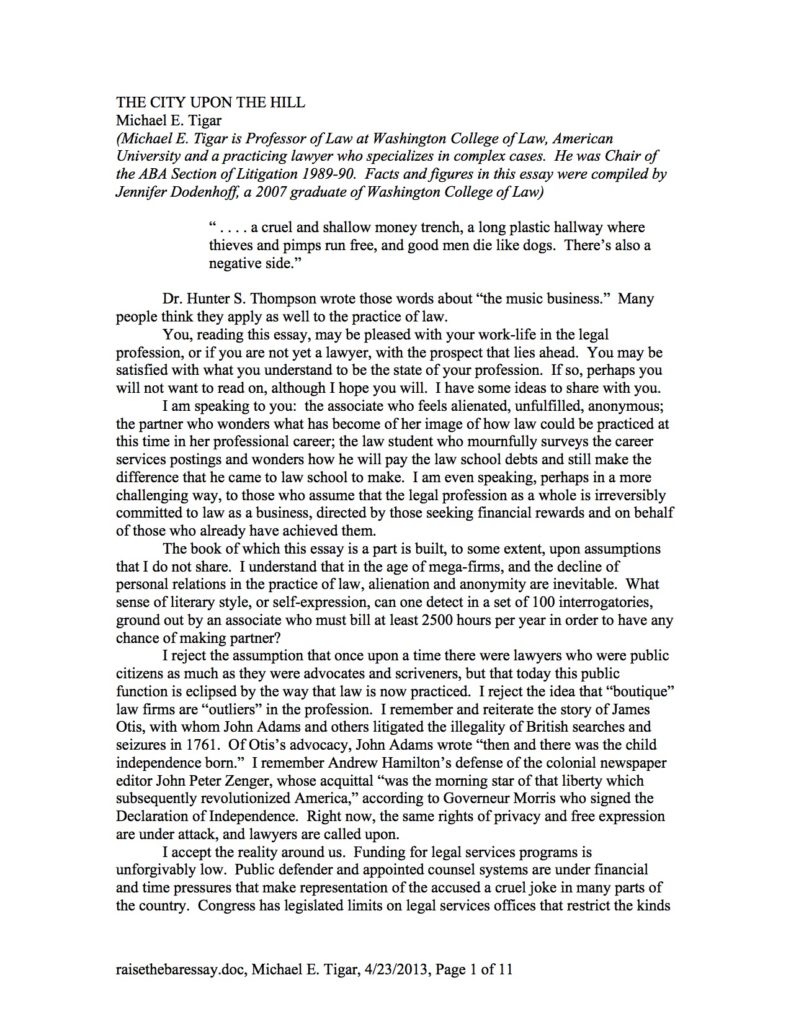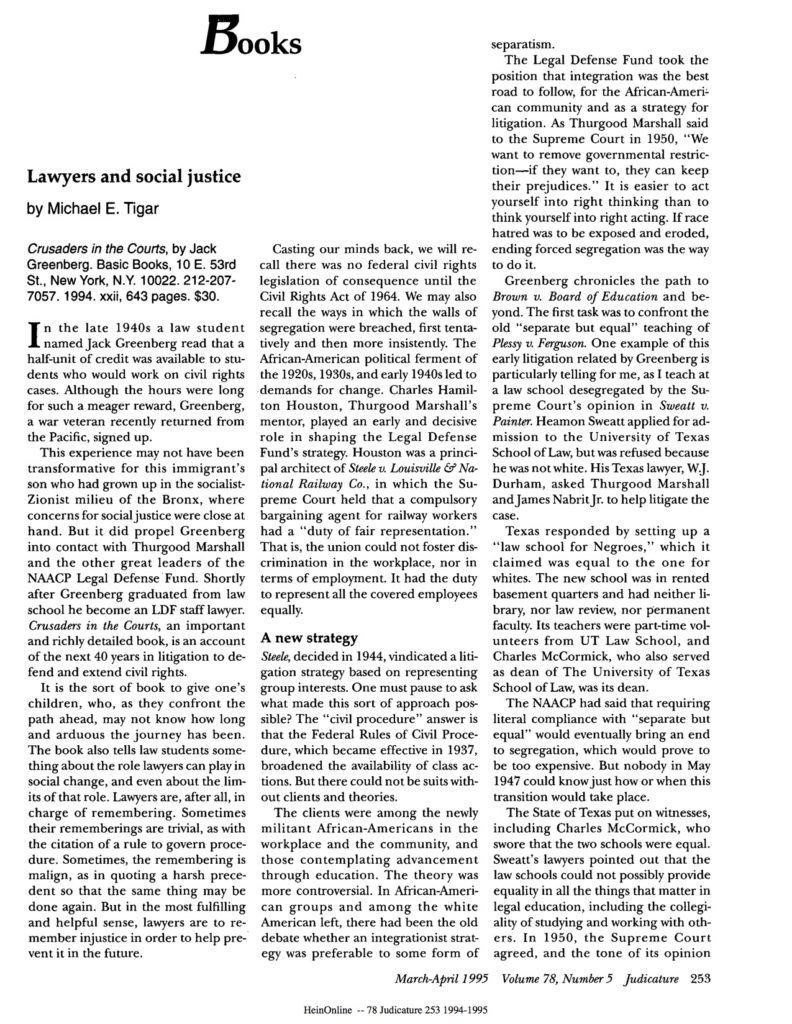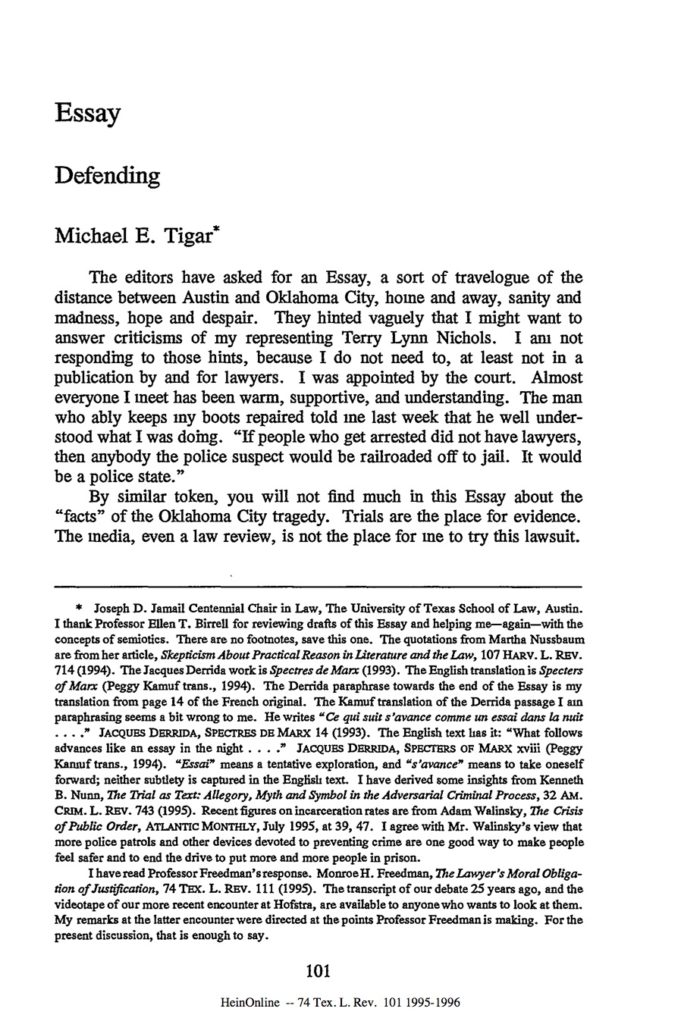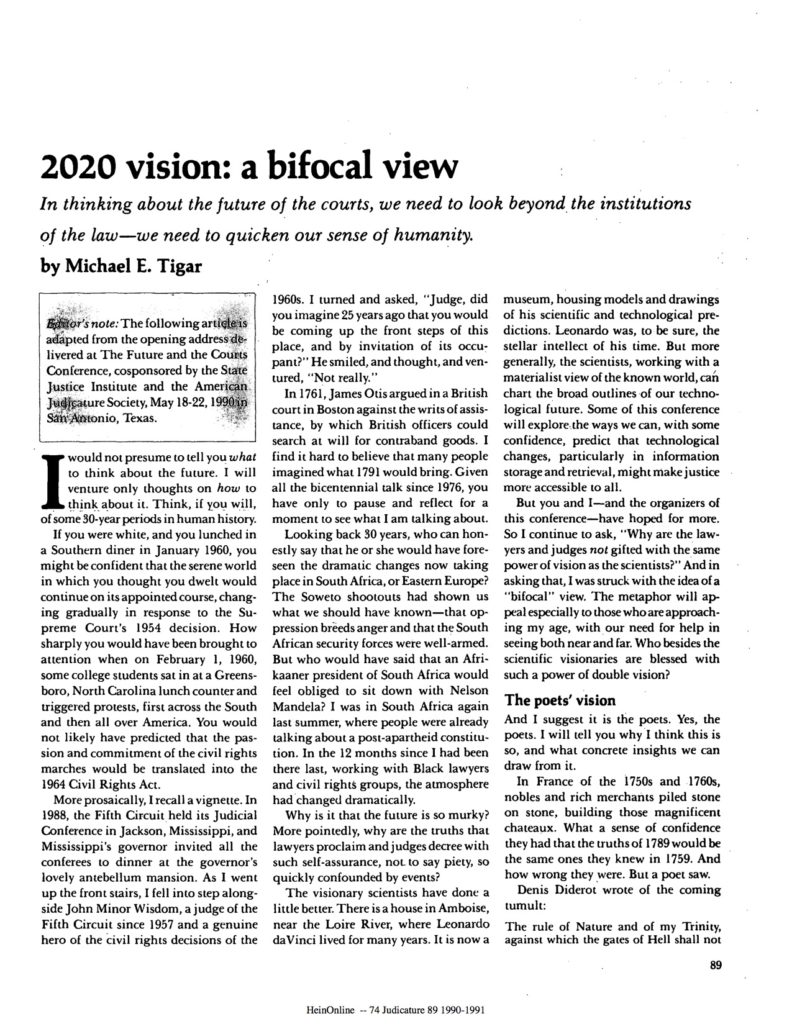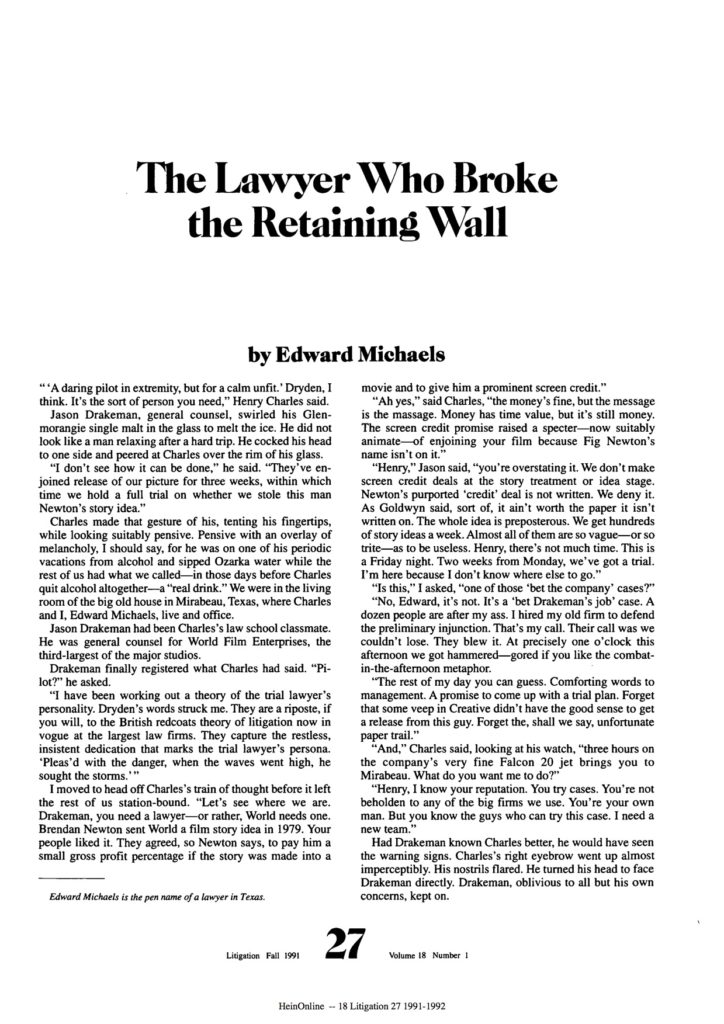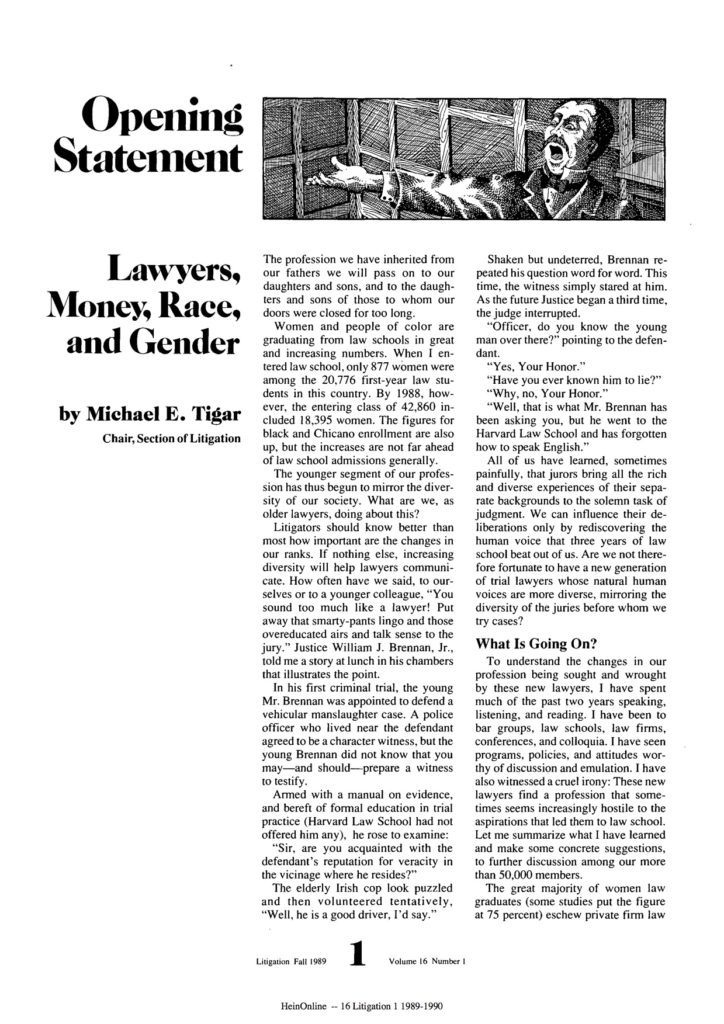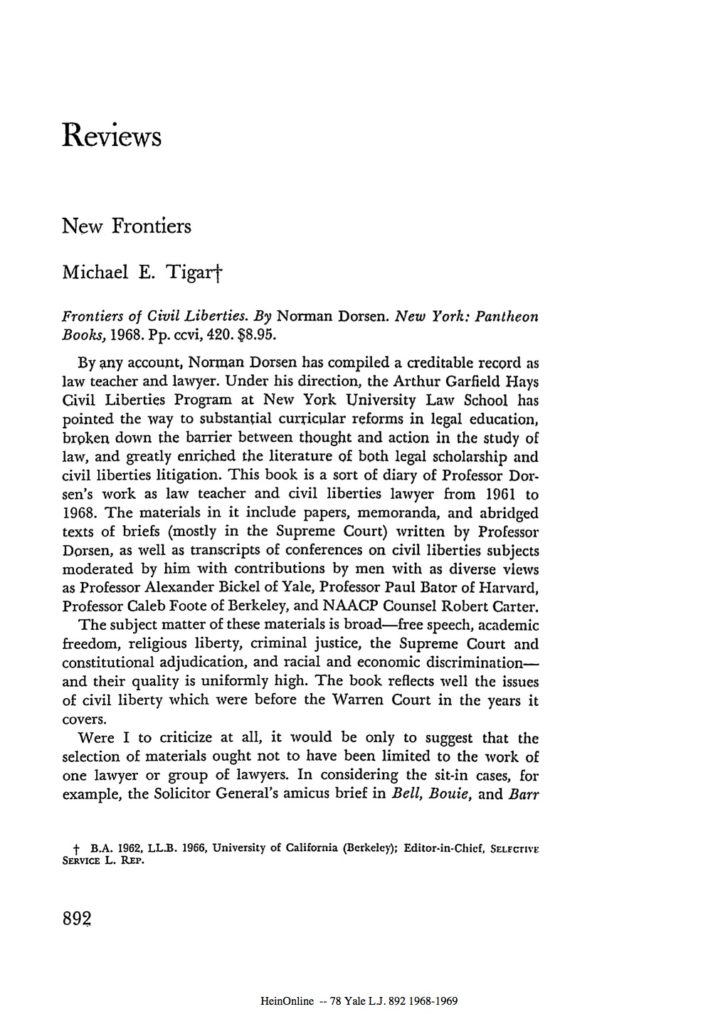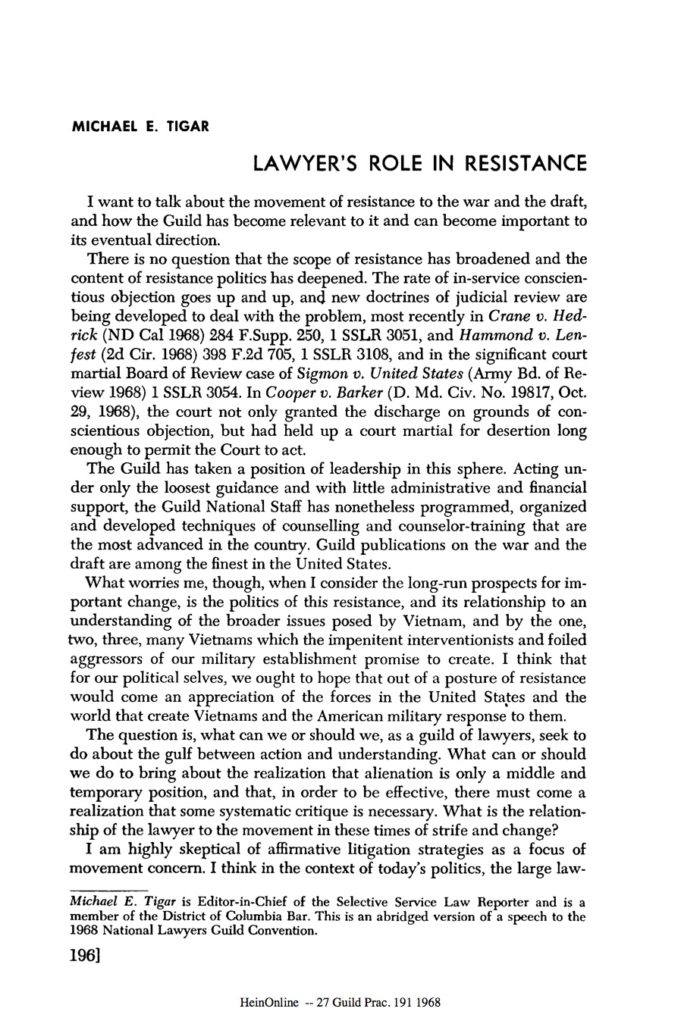Legal Ethics
Michael Tigar once remarked, “Since there are house counsels for large corporate interests skirting the edges of the antitrust laws, why shouldn’t there be lawyers talking with people skirting the edges of disorderly conduct laws?”. Perhaps his sense of the need for such lawyers partly explains his pursuit of cases that “involved the so-called ‘unpopular’ client – the outsider.”
Throughout his legal career, Tigar has commented on ethical dilemmas faced by members of the legal profession, as well as their obligations, with a specific focus on the important role that criminal defense lawyers play in checking the government’s prosecutorial power. He has also advanced the idea that lawyers, in addition to operating within the legal system, are ethically permitted—if not required—to help reform that system to achieve justice for all.
This section includes lectures, essays, and articles by Tigar that delve into different aspects of the professional ethical obligations of lawyers. Many call attention to the critical role that attorneys play in ensuring the exercise of every criminal defendant’s constitutional rights. One article considers that role in the context of his defense of Terry Nichols.
This section also includes items commenting on the business aspects of the profession. One such item, “The Lawyer Who Broke the Retaining Wall” is an article written under a pseudonym in the form of a short story.
Also included here is a recording of Tigar’s United States Supreme Court oral argument in the 1991 case Gentile v. State Bar of Nevada. In that case, Tigar successfully argued that ABA Model Rule 3.6, which limited an attorney’s right to communicate publicly about a case, was unconstitutionally vague.

